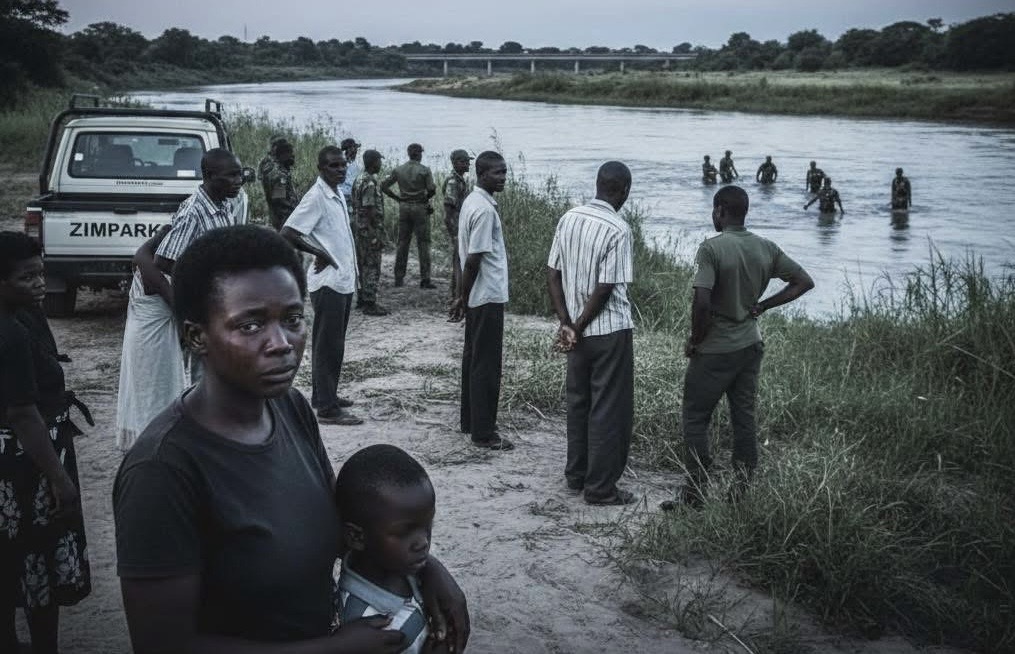BY NYASHA MUTIZWA
Laura Mukwauri (17) types at lightning speed on her laptop.
Not with her fingers, but with a pen held in between her teeth, stabilized with her tongue.
The A-Level student has limited use of her hands due to cerebral palsy, a condition that affects the joints in her limbs.
In pecking motion, she types away the finishing touches to her book, Once Upon A Life.
The piece was written while the business administration student was simultaneously writing her ordinary level examinations and passing with flying colours.
“It’s a book about my life as a person with cerebral palsy.
“It is my journey to learning and accepting that my dreams are valid,” says the teenager as her eyes sparkle with optimism.
Laura is a student at King George VI Centre (KG6) in the city of Bulawayo.
As a child with special education needs (SEN), Laura would ordinarily learn at an institution specifically catering to children with learning or physical disabilities.
However, she was schooled under the strategy of inclusive education meaning she learned and developed at the same pace as her able-bodied peers.
It is under this principle that the aspiring author has learnt the most important lesson of her life: her advancement and her aspirations, just like any other child, have no limits.
Inclusive education refers to a model wherein SEN students such as Laura learn with general education needs students.
It is built on the notion that it is more effective for them to have said mixed experience to be more successful in social interactions leading to further success in life.
Schools with inclusive classrooms do not believe in the separation of students, however, special assistance can be provided for learners who require it.
KG6 is one of few institutions in Zimbabwe practicing the inclusive education learning strategy.
The Unicef-supported school used to be categorised as a special school.
However, it has progressively adopted the inclusive strategy, now enrolling 70 percent of students with physically disabilities while 30 percent are non-disabled.
This way of learning allows Laura and the over 85,500 children with disabilities across the country, to learn the same curriculum and at the same pace as their able-bodied counterparts – all abilities, one education.
Headmistress, Persevere Hadebe, believes that the integration creates more accommodating members of society.
She says, “Laura has cerebral palsy, but she communicates with her peer who cannot hear.
“The student with no known disability, pushes her friend in the wheelchair through the playground at breaktime.
“They all learn that a disability does not mean inability in the classroom.
“They see this with Laura for example, one of our star pupils despite her condition.
“The children learn to treat each other equally.”
According to the 2013 Living Conditions among Persons with Disability Survey (LCPDS), it was estimated that more than 75 percent of children of school-going age with disabilities were out of school in 2012.
This was mainly due to factors such as illness or financial constraints.
For others, it was fear of abuse, discrimination and cultural beliefs that insist that disability is a curse – as was the case with Laura.
“Upon learning of Laura’s diagnosis, her mother abandoned the family believing that her daughter was bewitched.
“ She left the father to fend for Laura and her three siblings.
“It is this type of thinking and discrimination that inclusive education seeks to rectify at community level,” the headmistress concludes.
Matters of acceptance and inclusion have been taken up at a national scale. Under the principle of ‘Nothing about us, without us’, the Primary and Secondary Education ministry in partnership with Unicef worked with organisations representing Persons with Disabilities (PWDs) to draft the National Disability Policy.
Launched in June 2021, the document seeks to address the marginalisation and discrimination of PWDs from the industries right down to the classroom.
Though a wonderful concept, inclusive classrooms do not come without their challenges.
They require multi-skilled, adaptable, and flexible educators.
In the same lesson, the teacher must be able to assist the child with a physical disability, effectively communicate with the learner with Down’s Syndrome while teaching in sign language to the deaf student.
“It is not easy creating activities that include all students. It is also challenging to teach compassion to children and equally to parents,” said Lomaswati Mavhangira, Laura’s teacher and the KG6 centre administrator.
“A lack of adaptive equipment for the blind or adaptable language for the deaf, makes it difficult for teachers to lead.
“Sometimes we do not have teacher aides for those with severe disabilities.
“Additionally, we need to create lesson plans that enable each student to follow the curriculum and ultimately have a united classroom.”
To counter these challenges, Unicef and the Primary and Secondary Education ministry released the Inclusive Education Handbook in 2019. Developed through support from the Global Partnership for Education (GPE) and the Education Development Fund (EDF), the handbook provides practical guidance on inclusive education for teachers.
To date, over 39,000 copies have been distributed to over 9,500 schools in Zimbabwe.
In addition, the government has designed a rollout plan for inclusive education trainings for all teachers in Zimbabwe.
However, the programme has been delayed by the Covid-19 induced lockdowns and subsequent school closures.
The government of Zimbabwe in partnership with Unicef, hopes to make inclusive and quality education a reality for more children with disabilities.
It already is for Laura, who hopes to publish* Once Upon A Life *after completing her final examinations at the end of 2021.
“You can buy my first copy!” she says with an infectious smile. – Unicef

 Slider3 years ago
Slider3 years ago
 National4 years ago
National4 years ago
 Tourism and Environment4 years ago
Tourism and Environment4 years ago
 Special reports4 years ago
Special reports4 years ago
 Opinion4 years ago
Opinion4 years ago
 National4 years ago
National4 years ago
 National3 years ago
National3 years ago
 National3 years ago
National3 years ago


